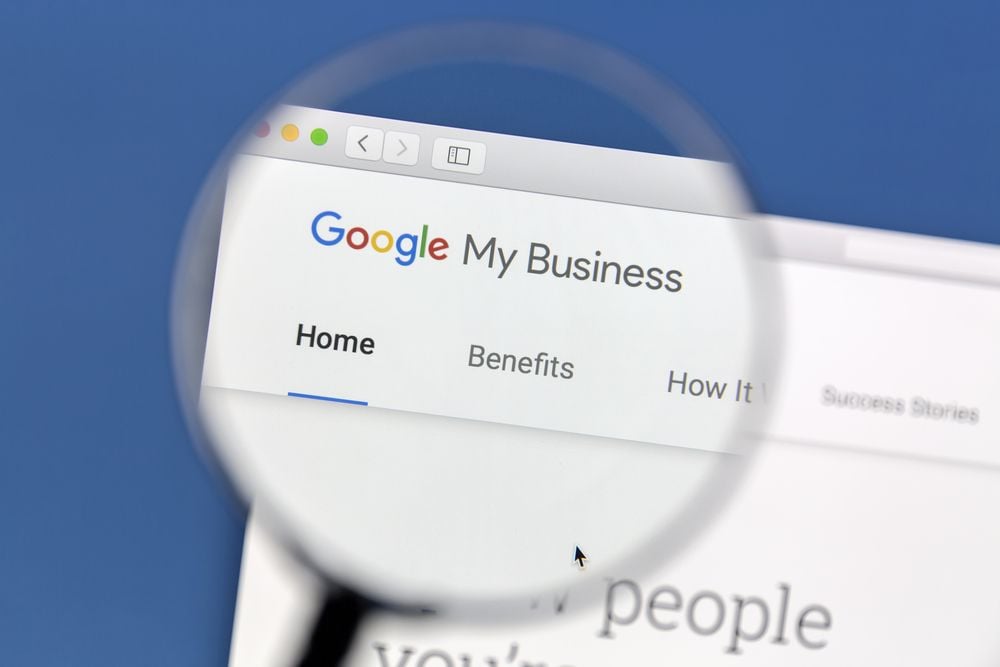6 Common SEO Mistakes Small Businesses Make
Know Which Common SEO Mistakes to Avoid to Grow Your Local Business
As a small business owner, you know how competitive the local market is. Anything to give yourself an edge to improve your visibility, get more leads and increase sales is a must.
Maybe you've looked into SEO before but haven’t had much success with it in the past. Maybe it sounds too complex and you're not sure what you're doing wrong.
Search engine optimization, or SEO, may sound a little daunting, but there's actually not much to it.
SEO means improving your website so it shows up higher and more often on Google Search. As a result, more potential customers can find your website and discover your business.
Some small business owners might see SEO as another useless expense, but SEO is key in marketing for future success.
Paying for mailouts, door hangers and online ads can generate immediate results, but what sets SEO apart is the invaluable impact a successful SEO campaign can have in the long run.
That's because SEO, if done right, can scale your website traffic exponentially—without any direct costs or expenses—even if you own a small, local service business.
In fact, SEO is perfect for local businesses. For example, working on your SEO creates side benefits for small businesses, such as better performance with Local Services by Google.
So knowing what areas to improve on and what are the typical mistakes is essential to understanding how to take your SEO game to the next level.
In this article, we’ll take a look at the six most common mistakes small businesses make when it comes to SEO.
Let's get to it so you can show off your awesome website to the world!
Top 6 Mistakes When Doing SEO for Small Business
These are the top 6 small business SEO mistakes that entrepreneurs make.
They range from unrealistic expectations to faulty execution. But once you recognize these mistakes, you can move on to proper strategies of doing SEO for small businesses.
- Expecting First-Page Results Overnight
- Using the Wrong Keywords
- Too Many of the Right Keywords
- Neglecting the Customer Experience
- Slow Website Speed
- Having an Out-of-Date Website
1. Expecting First-Page Results Overnight
Unlike paid ads, small business SEO success doesn't happen overnight. SEO requires patience to see results.
That's because Google's algorithms can take their time "judging" the quality and relevance of your webpages.
For instance, Google needs to make SEO assumptions about new content. It's because when a webpage is freshly published, Google doesn't have a lot of data to work with.
In fact, your content needs to build up a reputation for results. Therefore, don't change too much at once on your site so you can identify what's working and what needs improvement.
Monitor your SEO campaign every couple of weeks on tools like Google Analytics and Google Search Console.
Because of the nature of SEO, it's a huge mistake to obsess over the data on a daily basis.
Another great first step in creating a successful SEO campaign for your small business is to look at what competitors have done well and come up with a plan.
You can also find a quality company to work with to take your small business SEO to the next level. Check out NiceJob's guide on how to hire a digital marketing agency.
2. Using the Wrong Keywords
In the SEO world, keywords are crucial. That's because the keywords you add to your website are what Google uses to match your website with user queries on their search engine.
Since each website is different, spend time doing keyword research to find the right keywords to focus on to improve your rankings.
But a big mistake is using the wrong keywords by focusing too much on non-competitive terms (for instance, "plumber" instead of "24/7 plumber in New York").
Tailor your research for your company. If you're a plumber, for example, look for what people search about the problems you solve.
It's important to research popular terms like "plumber near me," but imagine the impact of ranking for "burst pipe <city>" because you targeted "What to Do if You Get a Burst Pipe."
So, how do you do keyword research for small business SEO? Try free tools like the Google Ads Keyword Planner or Ubersuggest.
3. Too Many of the Right Keywords
While it's bad practice to rely on broad keywords that may not be right for your business, when it comes to keywords and SEO, it's also possible to have too much of a good thing.
It’s a practice known as "keyword-stuffing" where you add in as many keywords on a page as you can to try to get Google’s attention.
If you throw as many keywords as you can on a page without considering how it reflects content relevance or affects readability for the user, then you might cause more harm than good.
That's because Google wants you to write naturally for SEO. So the best keyword density—the proportion of content devoted to keywords—is whatever's best for your readers, not algorithms.
Ask yourself if your content looks written by a human for other humans (does this content provide value to readers?) or if it looks written by a machine with countless keywords.
If it's the latter, you might be committing the common mistake of keyword-stuffing, hurting your website's Google Search rankings.
4. Neglecting the Customer Experience
Having an SEO-friendly website with keywords is essential to your success, but it's not the only element.
It's also important for your website to satisfy your visitors and serve their needs.
The experience visitors have on your website matters because search engines like Google take that into account when determining your website rankings.
Simply put, if users have a bad time on your webpage, Google will assume it wasn't relevant for their original query and might penalize you as a result.
How can you measure customer experience on a website, you might ask? There are a few metrics you can look at, such as bounce rate, conversion rate and time on page:
- Bounce rate measures the percentage of website visitors who leave before browsing more than one page.
- A conversion rate is what percentage of visitors took a desired action like submitting a contact form.
- Time on page simply looks at how long visitors stayed on your webpage.
All of these metrics can be tracked in Google Analytics, but pay particular attention to conversion rates as they can also directly impact your revenue.
Without a quality customer experience, your website will have limited success in converting visitors into leads. This is why it's important to know how to create a lead generation website.
5. Slow Website Speed
One of the best ways to optimize your website for search engines like Google is to improve the loading speed of webpages.
When indexing a webpage, Google and other search engines take loading speed into consideration. That's because if there's something website visitors don't like, it is to wait.
But what does loading speed mean? It refers to how long it takes a webpage to fully display in a user's internet browser.
If a page takes too long to load, your potential customers will leave and find another website to visit (they have a ton of options to choose from).
There are lots of great tips for how to speed up a website. Some easy wins for small businesses include tightening the size of website images and removing unnecessary website code.
6. Having an Out-of-Date Website
It's a good idea to regularly update your website with time. What worked for your website two years ago might not work today.
That's because SEO success relies on best practices that regularly change and Google prefers updated content from websites built to modern standards.
It makes sense, right? If you come across a business website that looks and functions like it's obsolete, you won't be likely to stick around on it long, will you?
As a small business, you need to stay informed on statistics for both your website and industry.
For example, knowing the average conversion rate in your industry gives you a good benchmark to evaluate how competitive your website actually is.
Typical conversion rates for local service businesses hover between 3-4%. If you're not hitting those benchmarks, maybe it's time to consider a brand new website!
Avoid Common SEO Mistakes and Grow Your Business
By avoiding these six common SEO mistakes, you can improve the overall experience visitors have on your website and increase your search rankings too!
If you focus on updating your website with an appropriate amount of keywords to satisfy Google, by improving the user experience and by speeding up load times, the sky's the limit.
NiceJob offers websites geared towards local businesses so you don't have to go it alone when deciding on a website redesign.
We call them Convert websites because they're guaranteed to improve your conversion rates.
And by guarantee, we mean that literally. If your new website doesn't improve your conversion rate by at least 10%—then it's free. It's that simple.
Now, it's time to get to work so your small business can reap the benefits of SEO!




